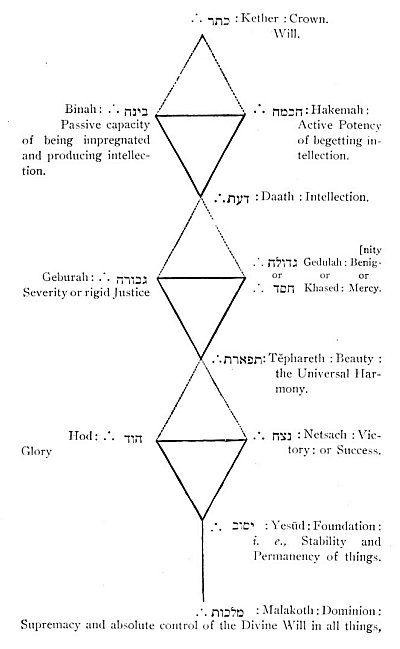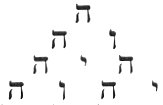“He liveth from all ages, he governeth all realms, and swayeth all things both great and small.
“He hath formed Heaven and earth, and the air, and all things thereunto belonging.
“He hath made man and given him a soul which shall live and never perish, though the body shall have mouldered away or have been burnt to ashes. And all that are righteous shall dwell with him in the place called Gimli or Vingolf; but the wicked shall go to Hel and thence to Niflhel which is below, in the ninth world.”
Almost every heathen nation, so far as we have any knowledge of their mythology, believed in one Supreme Overruling God, whose name it was not lawful to utter.
“When we ascend,” says Müller, to the most distant heights of Greek history, the idea of God as the Supreme Being stands before us as a simple fact. Next to this adoration of One God, the Father of Heaven, the Father of men, we find in Greece a Worship of Nature.” The original Ζεὺς was the God or Gods, called by the Greeks the Son of Time, meaning that there was no God before Him, but He was Eternal. “Zeus,” says the Orphic line, “is the Beginning, Zeus the Middle; out of Zeus all things have been made.” And the Peleides of Dodona said, “Zeus was, Zeus is. Zeus will be; O great Zeus!” Ζεὺς νἦ, Ζεὺς ἐστὶν, Ζεὺς ἐσσεται· ὦ μελάλη Ζεῦ: and he was Ζεὺς, κύδιστος, μέγιστος, Zeus, Best and Greatest.
p. 620
The Parsees, retaining the old religion taught by Zaradisht, say in their catechism: “We believe in only one God, and do not believe in any beside Him; Who created the Heavens, the Earth, the Angels. . . . Our God has neither face nor form, color nor shape, nor fixed place. There is no other like Him, nor can our mind comprehend Him.”
The Tetragrammaton, or some other word covered by it, was forbidden to be pronounced. But that its pronunciation might not be lost among the Levites, the High-Priest uttered it in the Temple once a year, on the 10th day of the Month Tisri, the day of the great feast of expiation. During this ceremony, the people were directed to make a great noise, that the Sacred Word might not be heard by any who had not a right to it; for every other, said the Jews, would be incontinently stricken dead.
The Great Egyptian Initiates, before the time of the Jews, did the same thing in regard to the word Isis; which they regarded as sacred and incommunicable.
Origen says: “There are names which have a natural potency. Such as those which the Sages used among the Egyptians, the Magi in Persia, the Brahmins in India. What is called Magic is not a vain and chimerical act, as the Stoics and Epicureans pretend. The names SABAOTH and ADONAI were not made for created beings; but they belong to a mysterious theology, which goes back to the Creator. From Him comes the virtue of these names, when they are arranged and pronounced according to the rules.”
The Hindu_ word AUM represented the three Powers combined in their Deity: Brahma, Vishnu, and Siva; or the Creating, Pre-serving, and Destroying Powers: A, the first; U or O^-O^, the second; and M, the third. This word could not be pronounced, except by the letters: for its pronunciation as one word was said to make Earth tremble, and even the Angels of Heaven to quake for fear.
The word AUM, says the Ramayan, represents “The Being of Beings, One Substance in three forms; without mode, without quality, without passion: Immense, Incomprehensible, Infinite, Indivisible, Immutable, Incorporeal, Irresistible.”
An old passage in the Purana says: “All the rites ordained in the Vedas, the sacrifices to the fire, and all other solemn purifications, shall pass away; but that which shall never pass away is
p. 621
the word A∴O^-O^∴ M∴ for it is the symbol of the Lord of all things.”
Herodotus says that the Ancient Pelasgi built no temples and worshipped no idols, and had a sacred name of Deity, which it was not permissible to pronounce.

Moe is the founder of GnosticWarrior.com. He is a father, husband, author, martial arts black belt, and an expert in Gnosticism, the occult, and esotericism.






